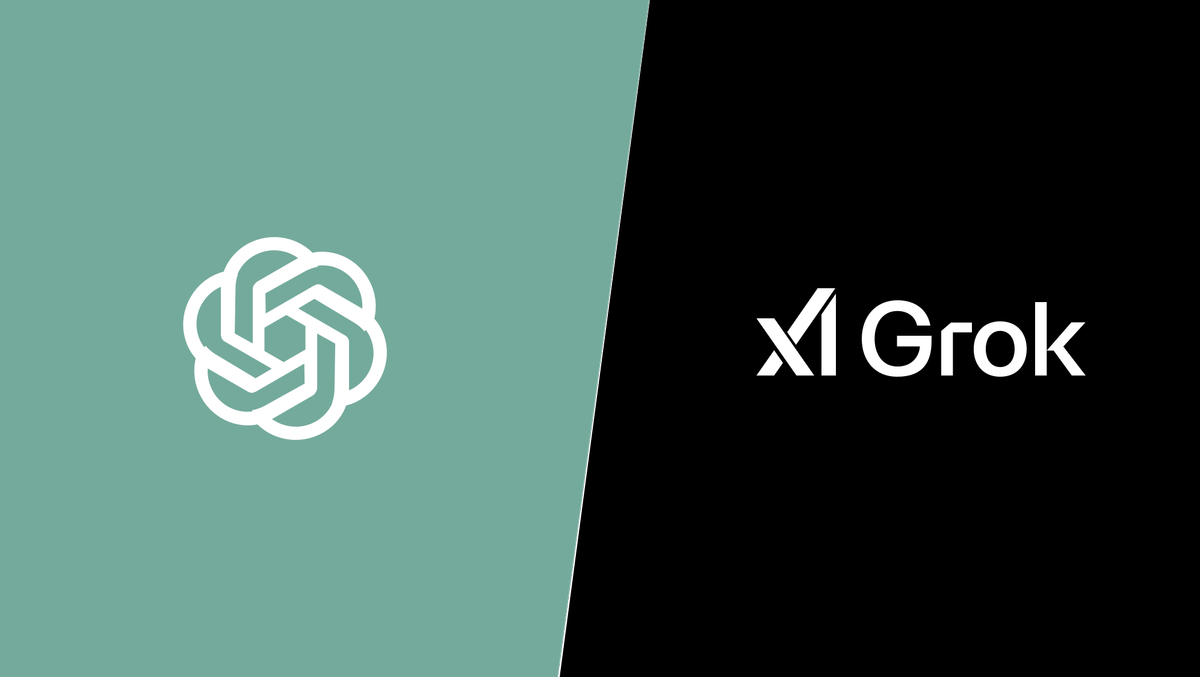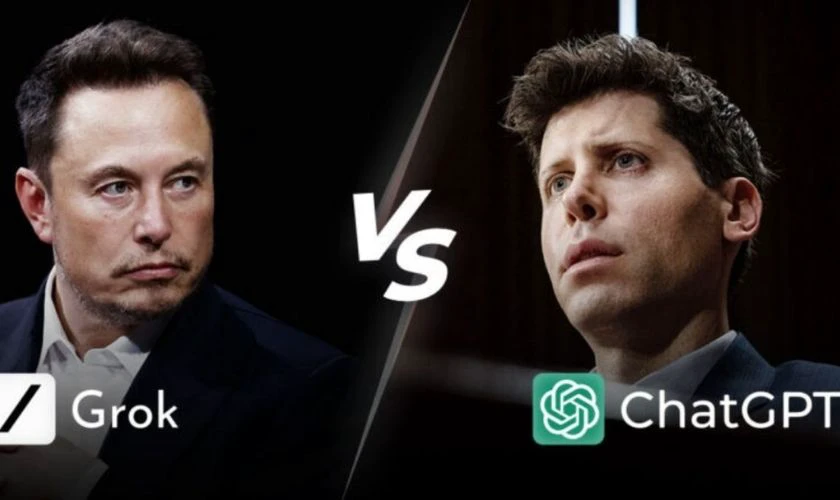Silicon Valley has always thrived on rivalry, but this is different. The courtroom has become the new battlefield for the future of artificial intelligence. On one side stands Elon Musk’s xAI, a company he built not just as another tech venture but as a moral crusade against what he sees as the dangerous centralization of AI power.
On the other side is OpenAI, once the nonprofit Musk co-founded with dreams of open access and transparency. Today, OpenAI is accused of becoming a profit-driven juggernaut, hungry to dominate the AI landscape at any cost. Musk’s lawsuit is not just legal paperwork—it is a declaration of war. The claim? That OpenAI deliberately lured away key employees from xAI, not just to expand its team, but to pry open the vault of secrets behind Grok, Musk’s ambitious AI. Musk’s supporters argue that this isn’t recruitment—it’s theft cloaked in polished contracts. The sparks flying now could ignite the kind of fire that changes the course of AI forever.
At the center of this storm is Grok, the AI chatbot Musk insists has surpassed ChatGPT. xAI alleges that OpenAI orchestrated a deliberate campaign to siphon away its talent, targeting employees with intimate knowledge of Grok’s architecture and vision. This, Musk claims, is not just corporate opportunism—it’s sabotage.
For Musk’s camp, the lawsuit is about justice and survival; for critics, it’s another example of his combative style. Yet the question that lingers is unavoidable: if Grok were truly insignificant, would OpenAI risk its reputation to poach insiders? Why would a giant in the industry even care—unless Musk had built something that made them nervous? Beneath the legal filings lies an unspoken truth: the AI race isn’t about who gets there first, but about who defines the rules of the game. And Musk has always played to rewrite the rules.
 Grok vs. ChatGPT: A Battle of Minds
Grok vs. ChatGPT: A Battle of Minds
The rivalry between Grok and ChatGPT is more than technological; it is symbolic. ChatGPT, polished and corporate-friendly, represents stability, control, and mainstream dominance. Grok, on the other hand, is marketed as raw, unfiltered, and closer to the messy, unpredictable intelligence of humans. Musk claims Grok doesn’t just generate text—it understands context at a deeper level and dares to answer the questions others avoid. Insiders whisper about features that push the boundaries of creativity and insight, hinting that Grok could even outperform ChatGPT in certain real-time problem-solving scenarios. If true, this positions Grok as a disruptive force. And disruption is Musk’s language. That may be why OpenAI’s alleged interest in xAI employees is being framed as more than coincidence—it could be an act of defensive desperation. Because when a newcomer threatens the throne, history shows the empire rarely plays fair.

 OpenAI Strikes Back
OpenAI Strikes Back
In its official response, OpenAI dismissed Musk’s lawsuit as “ongoing harassment.” The filing suggested that employees simply left xAI because of his leadership style, painting a picture of disillusionment rather than theft. “People have the right to go where they choose,” the company argued. On the surface, it sounds reasonable. But hidden between the lines is a revealing choice of words: “hemorrhaging talent.” If xAI truly is falling apart, why does OpenAI feel the need to emphasize it in a legal document? Supporters of Musk argue that this isn’t defense—it’s deflection. OpenAI wants the public to see Musk as the aggressor, yet their anxiety over xAI’s rise seems to seep through every paragraph. For many, this isn’t the calm confidence of a market leader—it’s the unease of a giant sensing real competition breathing down its neck.
 A Pattern of Power Plays
A Pattern of Power Plays
This lawsuit doesn’t exist in a vacuum. It’s part of a long, escalating war between Musk and OpenAI. He has already accused the company of betraying its founding principles, abandoning nonprofit ideals for billion-dollar partnerships. He has sued over its collaboration with Apple, framing it as a conspiracy to suppress independent AI rivals. Each battle adds a layer to the narrative: Musk the visionary against a tech industry growing fat on monopoly and secrecy. His critics call him paranoid, but his supporters argue he’s the only one brave enough to call out the game. They see a pattern of big tech collusion, where innovation isn’t rewarded but suffocated, and where anyone challenging the empire is painted as reckless. To them, this lawsuit isn’t just about Grok—it’s about breaking the cycle of Silicon Valley’s quiet power grabs.
 The Ethics at Stake
The Ethics at Stake
Beyond lawyers and contracts lies the question of ethics. Who should control the most powerful technology of our time? Musk says xAI exists to keep AI aligned with humanity’s interests, to democratize access rather than concentrate it. OpenAI, he argues, has strayed from that path, choosing secrecy, profit, and exclusive partnerships over transparency. The courtroom fight thus becomes symbolic: it pits two visions of the future against each other. Is AI a public good, developed openly for humanity’s benefit? Or is it a corporate asset, locked away and monetized by the few who can control it? Musk’s lawsuit forces that uncomfortable debate into the open, reminding the world that the stakes are not just business—they are civilizational. The ethics of AI may well be decided not in labs, but in courtrooms.
 The Taste of Betrayal
The Taste of Betrayal
What gives this story its raw edge is the history between Musk and OpenAI. In 2015, he was a co-founder, pouring his vision and resources into its creation. He dreamed of a nonprofit collective guarding humanity from unchecked AI power. Now, a decade later, he faces that very creation as a bitter adversary. For Musk, this isn’t just business—it’s betrayal. His allies describe it as watching his child grow into something unrecognizable. That sting drives his determination, transforming the lawsuit into something deeply personal. When Musk accuses OpenAI of abandoning its mission, it isn’t empty rhetoric. It’s the lament of someone who once believed. And that human wound resonates with those who see him not as a billionaire, but as a man fighting to reclaim what he helped build.

 The Underdog’s Edge
The Underdog’s Edge
Despite OpenAI’s dominance, Musk has always thrived as the underdog. SpaceX was a joke until it wasn’t. Tesla was “impossible” until it changed the auto industry forever. History shows Musk excels when the world doubts him most. Supporters argue that xAI could be his next great triumph, and that the lawsuit is less about retaliation and more about buying time—protecting his fragile but promising company from being crushed too soon. They say this is how Musk operates: taking bruises early, then returning stronger. The parallels with his past ventures are striking. Every time he’s been underestimated, he’s rewritten the industry. Could Grok be the AI that finally breaks ChatGPT’s monopoly? For those betting on Musk, the answer isn’t “if” but “when.”
 The World is Watching
The World is Watching
The Musk vs. OpenAI war isn’t just an American story—it’s global. Governments, regulators, and rival AI firms are closely monitoring every move. If Musk’s claims succeed, it could set a precedent that reshapes hiring practices, intellectual property protections, and competitive ethics in the tech industry. If he fails, it could embolden corporations to continue aggressive tactics unchecked. The stakes extend beyond San Francisco courtrooms to the very balance of global AI power. Will innovation remain open and diverse, or will it calcify into monopolies guarded by giants? The drama unfolding now will ripple through international policy, industry standards, and perhaps the trajectory of AI itself. Musk isn’t just fighting OpenAI—he’s fighting for a vision of how the world should interact with machines of the future.
 The Stakes of Tomorrow
The Stakes of Tomorrow
At its heart, this drama is about the soul of AI. Musk’s lawsuit against OpenAI isn’t merely about employees or contracts—it’s about whether the future of intelligence itself will be shaped by risk-takers willing to push boundaries, or by corporations guarding their empires. The stakes couldn’t be higher. For Musk, the fight is existential: protect xAI, protect Grok, protect the dream of open, ethical AI. For OpenAI, the battle is survival in reputation as much as dominance in the market. And for the world, the outcome may decide who holds the keys to the most transformative technology of our time. Musk thrives in impossible fights. And history has shown one truth over and over: when Musk bets everything, the world changes. The only question is—how far will he go this time?